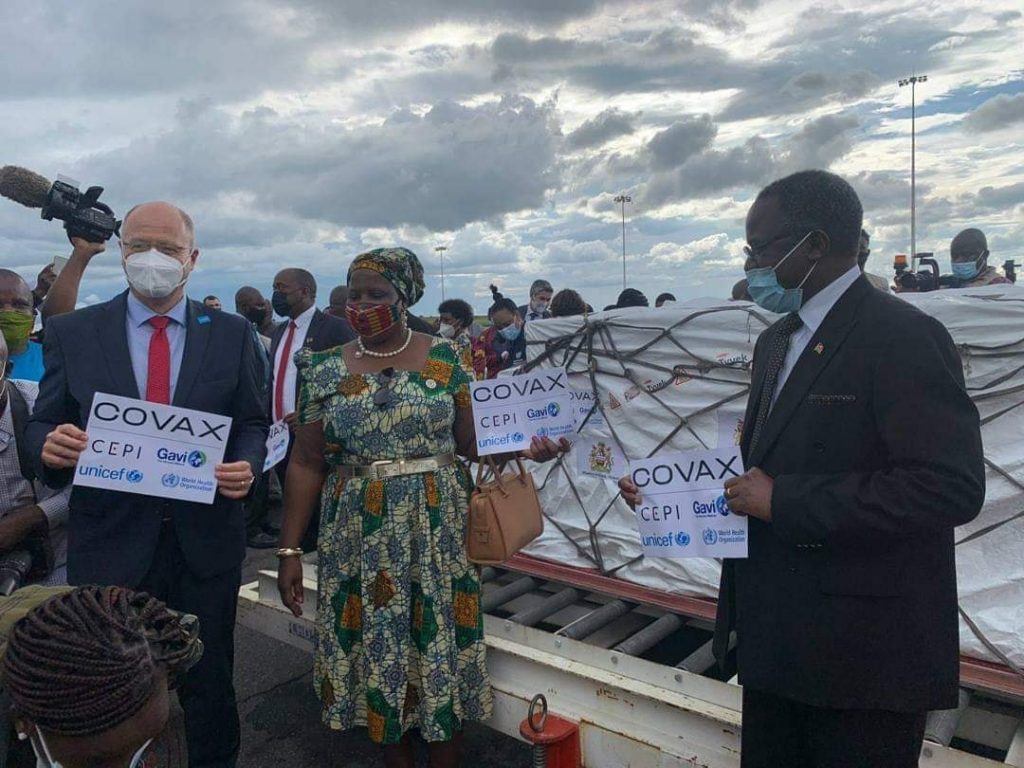No new Covid-19 vaccines in sight
Malawians will have to wait longer to boost their protection from Covid-19 as the expected delivery of 192 000 jabs of AstraZeneca vaccine failed yesterday.
In an interview, Ministry of Health spokeperson Adrian Chikumbe attributed the failed delivery of the shipment to logistical challenges which he could not elaborate.

“It is true the vaccines have not been shipped in. However, we are still expecting them to be flown in within the shortest period possible. Maybe within a month from now,” he said.
The consignment was expected to top up the 385 242 doses already injected into the population. It was scheduled to land at Kamuzu International Airport in Lilongwe on .
Chikumbe expressed disappointment with the delay, but was quick to point out that the country will, for now, continue relying on masking and social distance.
“Before the vaccines, we were dependent on precautionary measures. Vaccines were not coming to replace the masking and other preventive ways we have adopted as a country,” he said.
In a written response to a questionnaire, Unicef Malawi communications officer Rebecca Phwitiko, whose institution arranged the consignment, said the vaccines were scheduled to be picked up in Sweden on July 5, but it was not possible due to multiple factors.
“This constraint is due to multiple factors, including company-related production delays, shipping challenges and increasing demand. Participating countries and economies of the Covax facility are particularly affected,” she said.
Covax is a global collaboration co-led by Gavi, the Vaccine Alliance, the Coalition for Epidemic Preparedness Innovations, World Health Organisation and Unicef which leads on procurement and delivery.
The 192 000 vaccines, which the Ministry of Health said will be open to all above 18 years, are part of the French government donation through Covax facility to developing countries most of which have been struggling to raise enough funds to support their immunisation programmes.
Malawi is also expected to benefit from the 20 million doses of Johnson & Johnson and also Pfizer Covid vaccines expected to arrive in the country by August. This is a donation from the United States through the Covid-19 Vaccine access facility in coordination with African Union.
Under the Covax facility, Unicef has also delivered 3 420 000 syringes and 34 225 safety boxes for the safe disposal of syringes used in the Covid-19 vaccination.
Malawi, with only 43 165 fully vaccinated with two jabs of AstraZeneca, is battling against the third wave of the pandemic.
On Wednesday alone, according to the Ministry of Health, 781 new cases were recorded taking the cumulative tally to 40 731.
The Covid-19 treatment wards, which had almost cleared nearly two months ago, now have over 200 in-patients.
Meanwhile, chairperson for the Parliamentary Committee on Health Matthews Ngwale has blamed the government for solely relying on donated vaccines.
He said: “I am obviously disappointed with this situation, much so because I made a statement when responding to the 2021/22 budget.
“I asked the government to allocate some funds for the vaccine, but it didn’t pay attention. The problem with donations is that a lot of logistical and payment processes are followed and that causes the delays.”
When the country run out of the initial donation of 512 000 Astra-Zeneca jabs in mid-June, health experts pleaded with government to consider budgeting for procurement of Covid-19 vaccines, saying depending on ‘begging’ and waiting for donations is not a sustainable way to protect the population from the pandemic.
Currently, Malawi Government is also banking on the yet-to-be-delivered 900 000 doses from the Covax facility, a multi-donor initiative that mobilised the vaccines for poor countries. Delivery was due in May, but delayed due to high demand for the vaccine and India’s decision to reduce exports of the same to cater for its domestic needs.
Malawi targets to vaccinate 11 million or 60 percent of the population with the Covax facility providing vaccines for 3.8 million people. Government said it would mobilise seven million doses to hit at least 11 million of the population.





